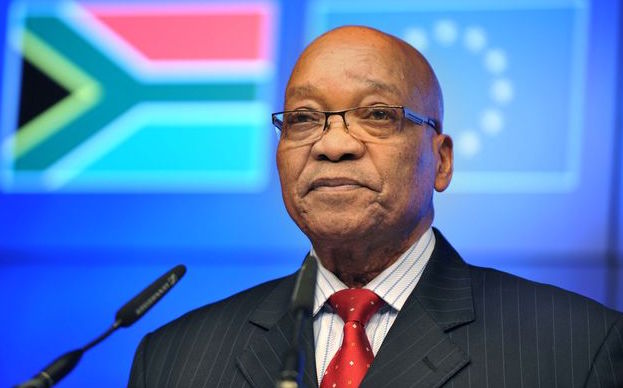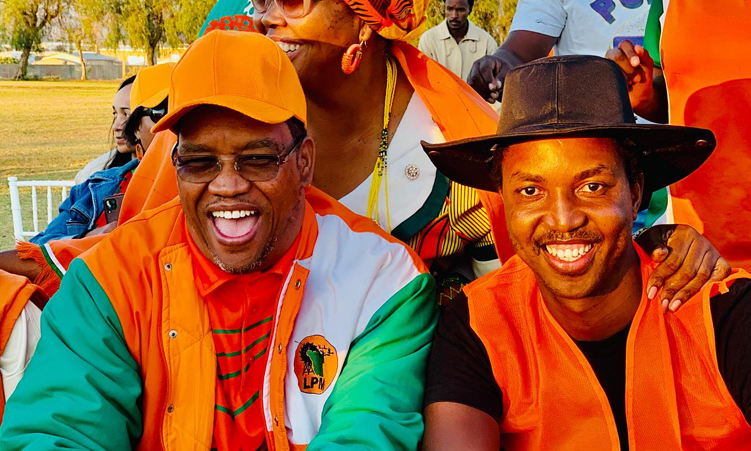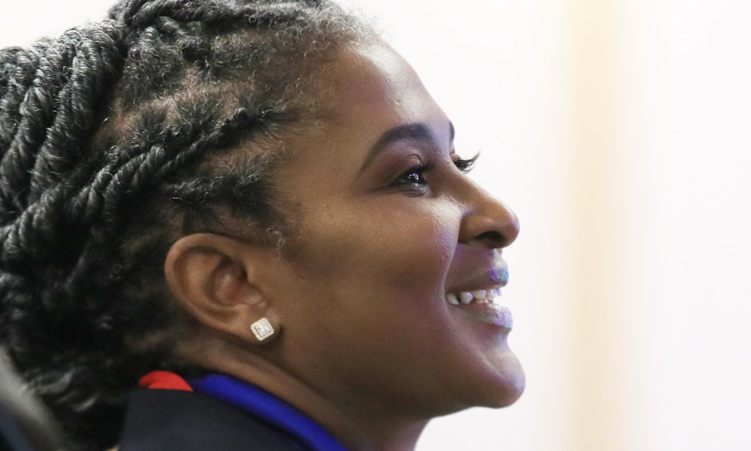United States president Donald Trump, the biggest menace to humanity, has agitated a global awakening. Trump cannot be adequately challenged within the ambit of the US political system, so the fightback is coming from ordinary people through mass protests and defiance campaigns.
In South Africa, civil society organisations are also trying to colour outside the lines. Besides wanting to boot out president Jacob Zuma, Save South Africa says it wants to “delve into the imperfections” of how leaders are elected. And Afriforum has hired a big gun to pursue prosecutions outside the state. The political system, as we know it, is under attack – and maybe it should be.
•RANJENI MUNUSAMY
Remember the United Front? Not many people do. It was the civil society coalition initiated by metalworkers’ union Numsa as a mobilising front against government and the ruling alliance. It was to be the next big thing in South Africa – until it wasn’t. The United Front held a few protest marches which not many people bothered to attend, and even tried to mutate into a political party in the Eastern Cape. It did not have much luck in last year’s local government elections.
Save South Africa has attracted some of the civil society organisations that were part of the United Front, such as Section27, Corruption Watch and the Organisation Undoing Tax Abuse (Outa).
While Zwelinzima Vavi, him of the epic Cosatu battle, was meant to lead various Numsa initiatives which appear to be still languishing in the starting blocks, Save South Africa has one big asset that the United Front did not have a big personality as its figurehead.
Sipho Pityana has all the right credentials to lead the new civil society front. He has an impressive history in the ANC, worked as a senior official in government, and now serves as chairperson of the Council for the Advancement of the South African Constitution (Casac). He is also a respected businessman.
When Pityana spoke at the funeral of ANC veteran Makhenkesi Stofile last year, he captured the concerns of many people in the ANC and the country. He talked about the shame president Jacob Zuma had brought by violating the constitution and failing to lead with integrity. People paid attention because of who he is and what he said.
When Save South Africa launched three months ago, the campaign caught fire as it took on a big issue that many South Africans were worried or angered about: the hit on finance minister Pravin Gordhan. Save South Africa was at the forefront of the protest action against the attempt to charge Gordhan so that he would be removed from his position and the National Treasury captured.
But the campaign’s main target is Zuma. They have a running no-confidence motion against the president, and believe that he is the primary reason for the country’s state of decline.
Business leaders, who are generally hesitant to participate in protest action, particularly targeted at government, rallied behind the initiative. Besides participating in the march in support of Gordhan, business leaders are providing financial support to Save South Africa. According to Lawson Naidoo, one of the campaign’s leaders, Save South Africa will be disclosing all its funders publicly to ensure full transparency.
But where is Save South Africa going? At an editors’ breakfast in Johannesburg on Tuesday, Pityana said the direction depends pretty much on the moves Zuma makes next, but insists that Save South Africa is not and does not want to be a political party.
“We are a counter-veiling force to those who are intent on undermining our democracy,” he said. And dislodging Zuma was necessary to discuss the quality of leadership needed to restore integrity to the ANC and government.
“We do not believe that removing Zuma is the silver bullet that puts an end to the rot. But it is the beginning of unravelling the corruption, reversing state capture, restoring the integrity of the state and embarking on a new trajectory,” Pityana said.
But here is where it gets tricky.
Pityana says they want ordinary citizens to have a say in how leaders of political parties are elected. While the ANC is the main focus, he said there should be scrutiny of all political party election processes. Because of the roles they play in the state and in parliament, including voting to elect and fire the president, citizens should be involved to ensure leaders with the “correct profile” are chosen.
At this point, you imagine the giant spectre of ANC secretary general Gwede Mantashe appearing and rumbling:
“You cannot dictate to the ANC how it should elect its leaders. That is an ANC process! If you want to participate in electing ANC leaders, join a branch!”
The ghosts of Gwede past, present and future would be right. It is the ANC’s business, and it is quite rich for people outside the organisation to prescribe who is capable and appropriate to lead it.
The problem, of course, is that the ANC’s long-standing electoral process led to branches and structures electing someone of Zuma’s calibre as president. Twice. And they have no practical mechanism to hold him to account for his leadership failures. The ANC process is also open to manipulation through gatekeeping of branch membership, voting according to factions and slates, and vote buying.
The ANC is now trying to counteract tampering of the will of the branches by higher structures of the party. Mantashe told a media briefing on Monday that branch nominations for leadership positions would go directly to the electoral commission in sealed envelopes, instead of being channelled through the ANC structures.
Pityana says this is a step in the right direction. The ANC’s assertion that leaders should undergo lifestyle audits was also an acknowledgement of the prevalence of corruption. But, he says, the electoral process should be opened up further with more debate and scrutiny from ordinary citizens.
Save South Africa wants to promote an active citizenry by helping people know their rights and responsibilities. Engagement should go beyond social media commentary into the streets, he said. Save South Africa is holding a series of townhall meetings across the country to tell people why Zuma is a bad leader, explain what state capture is, and how corruption affects everyone. They are also promoting an understanding of ethical leadership so that people insist that only those who are fit and proper should be elected. –
Stay informed with The Namibian – your source for credible journalism. Get in-depth reporting and opinions for
only N$85 a month. Invest in journalism, invest in democracy –
Subscribe Now!






